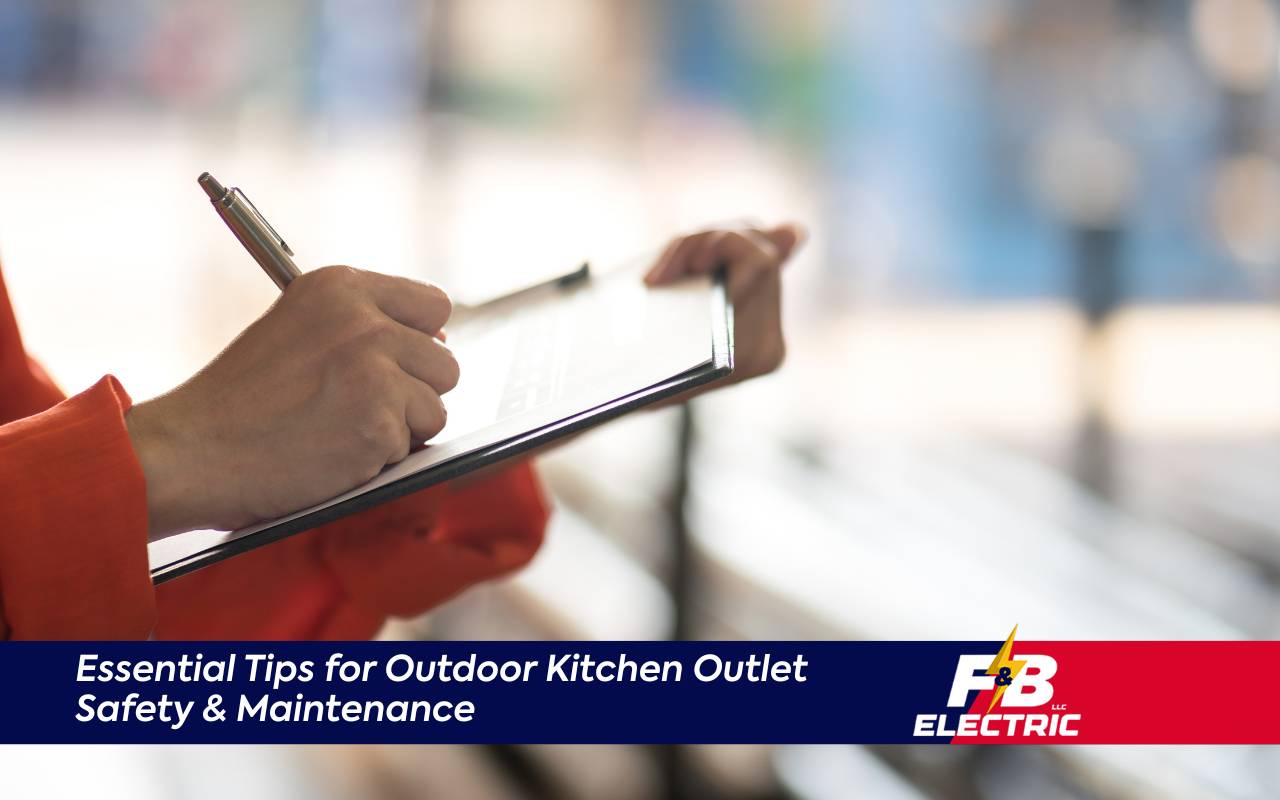
A crackling barbecue on a sunny afternoon, the aroma of grilled vegetables mingling with laughter—outdoor kitchens offer a unique blend of culinary delight and social engagement. However, amid this picturesque setting, outdoor kitchen outlet safety is often overlooked, turning a haven into a potential hazard. It’s more than just keeping your space tidy; it’s about ensuring that every electrical outlet and connection performs without a hitch.
Faulty wiring or poorly maintained outlets can lead to dangerous situations, transforming a day of joy into a nightmare. As we delve into the essential tips for maintaining outlet safety in your outdoor kitchen, it’s crucial to consider not just the immediate benefits but the longevity of your entire setup. Whether you’re a seasoned chef or a weekend griller, knowing how to safeguard your kitchen appliances from the elements and electrical mishaps is key.
Importance of Outdoor Kitchen Outlet Safety
Ensuring outdoor kitchen outlet safety is the cornerstone of preventing electric shock, fire hazards, and costly damage to appliances. Unlike indoor outlets, those installed outside face rain, humidity, temperature fluctuations, and pests, all of which can degrade wires and corrode contacts.
A single spark can escalate quickly, endangering guests and damaging high-end grills or lighting systems. Safe outlets mean protective covers, proper wiring practices, and regular inspections. Hosting friends and family should be about camaraderie, not worrying if lights will flicker. Adhering to local codes and installing GFCIs drastically reduces electrocution risks.
Inspecting Electrical Outlets Regularly
- Inspect outlets at least twice a year.
- Check for cracks, rust, or loose covers.
- Test functionality with appliances or testers.
- Stop using outlets showing sparks, heat, or buzzing.
Routine inspections reinforce outdoor kitchen outlet safety, extending outlet lifespan and ensuring secure gatherings.
Weatherproofing Your Outdoor Outlets
Protecting outlets from rain, snow, and UV exposure ensures reliability. Weatherproof outlet boxes and in-use covers block moisture ingress even with cords plugged in. Adding silicone sealant, routing cables through watertight conduit, and placing outlets under eaves all minimize risk.
Proper Grounding Techniques for Outlets
- Use a dedicated grounding conductor to the main panel.
- Install GFCIs to protect against shocks.
- Test reset buttons quarterly.
- Inspect grounding rods and clamps regularly.
Proper grounding ensures compliance and boosts outdoor kitchen outlet safety significantly.
Safe Usage of Extension Cords in Outdoor Kitchens
Extension cords are convenient but risky if misused. Use heavy-duty outdoor-rated cords marked with “W.” Select 12 or 14 AWG for high-wattage appliances. Avoid daisy-chaining cords and keep them dry and elevated. Inspect before each use, discarding frayed or cracked ones. Remember, cords are temporary—permanent wiring is always safer.
Maintenance Tips for Outdoor Kitchen Outlets
- Clean covers and boxes seasonally.
- Sand rust spots and replace damaged screws.
- Check wires for heat or discoloration.
- Lubricate gaskets with silicone grease.
Consistent upkeep maintains long-term outdoor kitchen outlet safety and prevents costly replacements.
Signs of Electrical Issues to Watch Out For
Watch for flickering lights, buzzing sounds, warm outlets, scorch marks, or persistent breaker trips. These symptoms signal issues that can compromise both appliances and personal safety. Early action prevents accidents and secures your outdoor kitchen.
Consulting a Professional Electrician for Outlet Maintenance
DIY maintenance is useful, but a licensed electrician provides expertise. They detect hidden wiring faults, ensure code compliance, and offer annual audits. Professionals enhance outdoor kitchen outlet safety with advanced tools and certified reports. Hire a trusted electrician for inspections and upgrades to guarantee a worry-free setup.
Creating a Safety Checklist for Outdoor Kitchen Outlets
A safety checklist organizes tasks and avoids missed details:
- List outlet locations and installation dates.
- Verify cover and gasket integrity.
- Conduct functional power and GFCI tests.
- Track anomalies and repair dates.
- Record professional visits and code checks.
FAQs About Outdoor Kitchen Outlet Safety
Why is outdoor kitchen outlet safety important?
It prevents shocks, fires, and costly appliance damage while keeping gatherings safe and enjoyable.
How often should I inspect my outdoor outlets?
At least twice a year and after severe weather to identify corrosion, cracks, or loose connections.
Do I need GFCI outlets outdoors?
Yes, GFCIs detect imbalances and cut power instantly, drastically reducing electrocution risks.
Can I rely on extension cords long-term?
No, cords are temporary. Plan for permanent wiring for long-term reliability and safety.
When should I call a professional electrician?
Call if you notice persistent issues, odd smells, or after adding major appliances. A pro ensures compliance and peace of mind.
Enjoying Safe and Carefree Outdoor Cooking
Applying these practices ensures safe, delightful gatherings. Inspect, weatherproof, ground, and maintain outlets to avoid hazards. Whether DIY or professional, safety steps keep your kitchen functional and worry-free. For expert help, visit our contact page or explore our electrical services to secure your outdoor kitchen today.
